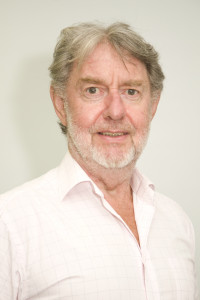 Like all non-specialist, palliative care healthcare professionals, doctors have varying degrees of willingness to broach difficult conversations with patients and families, particularly if it is a conversation that is about care as opposed to cure. But a new report from the British Medical Association (BMA) says that doctors need to be having these difficult conversations in order to ensure a good palliative and end of life care experience for all.
Like all non-specialist, palliative care healthcare professionals, doctors have varying degrees of willingness to broach difficult conversations with patients and families, particularly if it is a conversation that is about care as opposed to cure. But a new report from the British Medical Association (BMA) says that doctors need to be having these difficult conversations in order to ensure a good palliative and end of life care experience for all.
Good care is not only about planning how a patient can live, but also how a patient can die. A patient’s access to, and experience of, palliative and end of life care is influenced as much by a doctor’s communication skills as their clinical skills.
The BMA’s report shows that even though every doctor will come into contact with a dying patient, many struggle to actually talk to them openly and honestly about their diagnosis—particularly in non-cancer situations. This may be because the progression of the disease may be difficult to predict but, nevertheless, an honest discussion about prognosis can often lead to more satisfactory management to the benefit of patients and their families.
GPs and consultants need to be much more at one with end of life discussions and be prepared to discuss with each other how best to approach patients with limited life expectancy. All healthcare professionals in a person’s care need to be on the same page regarding the appropriateness of palliation, and communicate this to patients and their families in a clear and cohesive manner.
The reality is that some patients and families find discussing negative prognoses extremely difficult and this is particularly the case if one doctor is advising treatment, which a patient interprets as “curative,” while another clinician wishes to broach palliation as a more realistic option.
As the BMA is suggesting, all doctors should be prepared to open difficult discussions when life expectancy is limited and be skilled at leading these conversations with patients and relatives. It is not fair on patients and families to have unrealistic expectations, a situation which can have far reaching consequences in bereavement.
Recognition of dying patients and their satisfactory management seems increasingly to be the sole remit of specialist palliative care clinicians and geriatricians but, if we are to avoid needlessly poor end of life experiences for many patients, much greater training in communication skills and a more honest approach to the last phase of life is crucial.
Addressing this lack of professional skills and confidence, as identified by the BMA, will need both investment and a change of culture within the NHS if we are to broaden exemplary palliative care, particularly for non-cancer patients.
Dying is everyone’s business and therefore, even though it may be the last thing doctors or patients want to talk about, having these difficult conversations as soon as is appropriate gives the dying person and their loved ones more choice and control over their place of care and death. It also gives people that much needed time to come to terms with dying, plan ahead, and say goodbye properly.
Dr John Hughes is the medical director at Sue Ryder, a leading provider of personalised hospice and neurological care in the UK. John has a strategic role in the development of all clinical aspects of Sue Ryder’s service delivery and is passionate about ensuring the charity provides first class care for service users. As a former GP in South East Hampshire for over 30 years, and as a former medical director and director of clinical strategy for Hampshire Community Health Care, John also has firsthand knowledge of practice based commissioning.
Competing interests: None declared.
